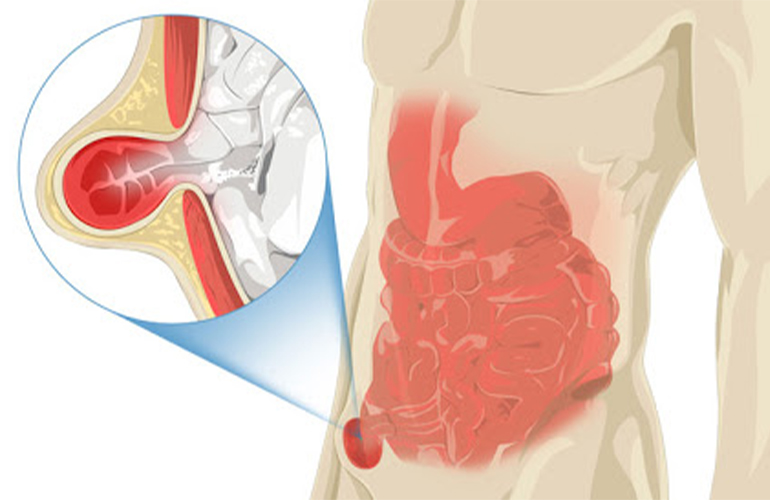Inguinal hernia disease refers to the chronic condition of having one or more inguinal hernias. It may present as a congenital weakness in the abdominal wall or develop later in life due to physical stressors. Inguinal hernias are categorized into two types:
Indirect inguinal hernia: The most common type, occurring when the intestine or bladder protrudes through the abdominal wall or into the inguinal canal. Often present from birth.
Direct inguinal hernia: Occurs when abdominal contents push through a weak spot in the fascia of the abdominal wall near the inguinal canal, typically seen in older adults and those who exert significant physical effort.
Visible Bulge: One of the most noticeable signs, which may become more apparent when standing up or straining and may disappear when lying down.
Pain or Discomfort: Especially in the groin area when bending over, coughing, or lifting. The pain may range from sharp and immediate to a dull ache that worsens throughout the day.
A Heavy or Dragging Sensation: Often described in the groin or scrotum.
Swelling or Bulge in the Scrotum: Encountered primarily in men.
Occasional Symptoms: Such as nausea, a burning sensation, and pain while urinating if the protruding tissue becomes trapped or strangulated.
Surgical repair is the only effective treatment for inguinal hernias and is necessary to prevent complications such as strangulation, which is a life-threatening condition. There are two main surgical options:
Open Hernia Repair: An incision is made in the groin, and the protruding tissue is pushed back into the abdomen. The weakened area is then repaired and reinforced with a synthetic mesh.
Laparoscopic Surgery: Involves making several small incisions in the abdomen through which surgical tools and a tiny camera are inserted. The hernia is repaired from inside the abdomen, and this method is less invasive, offering quicker recovery times and less post-operative pain.
Turkey is renowned for its advanced medical technology and skilled surgeons, making it an attractive destination for patients seeking inguinal hernia surgery. Factors to consider include:
Quality of Care: Many Turkish medical facilities are internationally accredited and offer high standards of care.
Cost-Effectiveness: The cost of hernia surgery in Turkey is typically lower than in many Western countries, while still providing top-notch medical services.
Experienced Surgeons: Turkish surgeons are often highly experienced in both traditional and laparoscopic hernia repairs.
Medical Tourism: Patients can benefit from comprehensive care packages that include the surgery, hospital stay, post-operative care, and sometimes even accommodations and tourism services.
For individuals considering inguinal hernia surgery in Turkey, it's crucial to research and select accredited hospitals, verify the qualifications and experience of the medical staff, and understand the full scope of the care package offered.
